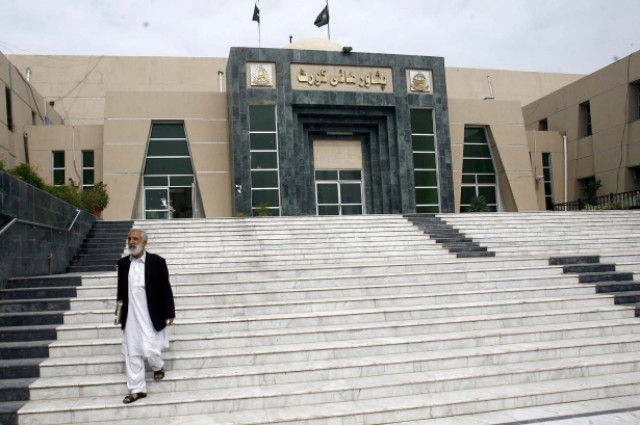Case of Asamai temples: Written assurance sought from Auqaf department on preservation
Court also extended stay order issued on demolition

The petition also stated if destroying religious institutions of minorities is allowed, Pakisani citizens will have no moral authority to claim security of religious places in India. PHOTO: PPI
While hearing a writ petition filed by Moazzam Butt, a division bench of the Peshawar High Court consisting Justice Yahya Afridi and Justice Waqar Ahmad Seth issued a notice on Tuesday to administrator of the Auqaf department, asking for a written reply.
The bench also extended the stay order issued on previous hearing on demolition of the structure.
The Auqaf department’s deputy administrator appeared before the court and said his department has been looking after the temples and gurdwara since 1947. He added they were closed as they had not been used for worship since independence.
He said the department was looking after the historic structures and had no intention to sell the property. He added as these buildings were located in a commercial locality, the surrounding areas of the temples were being used for commercial purposes. “The revenue generated from these structures is being spent on the welfare of minorities.”
After hearing the arguments, the bench ordered the department to file a reply before the court and adjourned the case.
On an earlier hearing, the petitioner told the court the property had century old temples and a gurdwara of historic importance which have been declared part of the country’s heritage. He said under Article 20 of the Constitution, any change to the nature of places of worship of Hindus and Sikhs was not permissible.
Conning inhabitants
After independence, Kashmiris and some other families from Landikotal were given shelter in the temple. Butt said recently a government official reached an understanding with Ikram Shinwari over construction of a plaza in place of the temples. He added Ikram approached the families and told them their occupation was illegal and they should either vacate the place or pay the amount agreed between him and the department.
Butt contended Ikram told the families the department had allowed him to construct a plaza on the land. He added Ikram, in connivance with a local nazim, Sher Farzind, harassed the residents.
He said documents were prepared and residents were paid an amount after which the official said he transferred the property in Ikram’s name. He added the historical buildings would be demolished to create space for the construction of plaza.
Butt said under Antiquities Act, 1975, a building as old as 75 years could be declared a national heritage, while this building was over a century old.
He said under Antiquities Act, 1997, this building falls within the jurisdiction of the provincial government, while the archives department looks after it.
Property value
He maintained the property was located where the market value of a one-marla plot was Rs20 million, whereas its government price could be just Rs6.5 million per marla.
He added if there was an open invitation for a transparent auction of the property, it could benefit the government exchequer, but unfortunately, Ikram and the official had a verbal agreement between themselves.
The petition also stated if destroying religious institutions of minorities is allowed, Pakisani citizens will have no moral authority to claim security of religious places in India.
Published in The Express Tribune, July 20th, 2016.













COMMENTS
Comments are moderated and generally will be posted if they are on-topic and not abusive.
For more information, please see our Comments FAQ